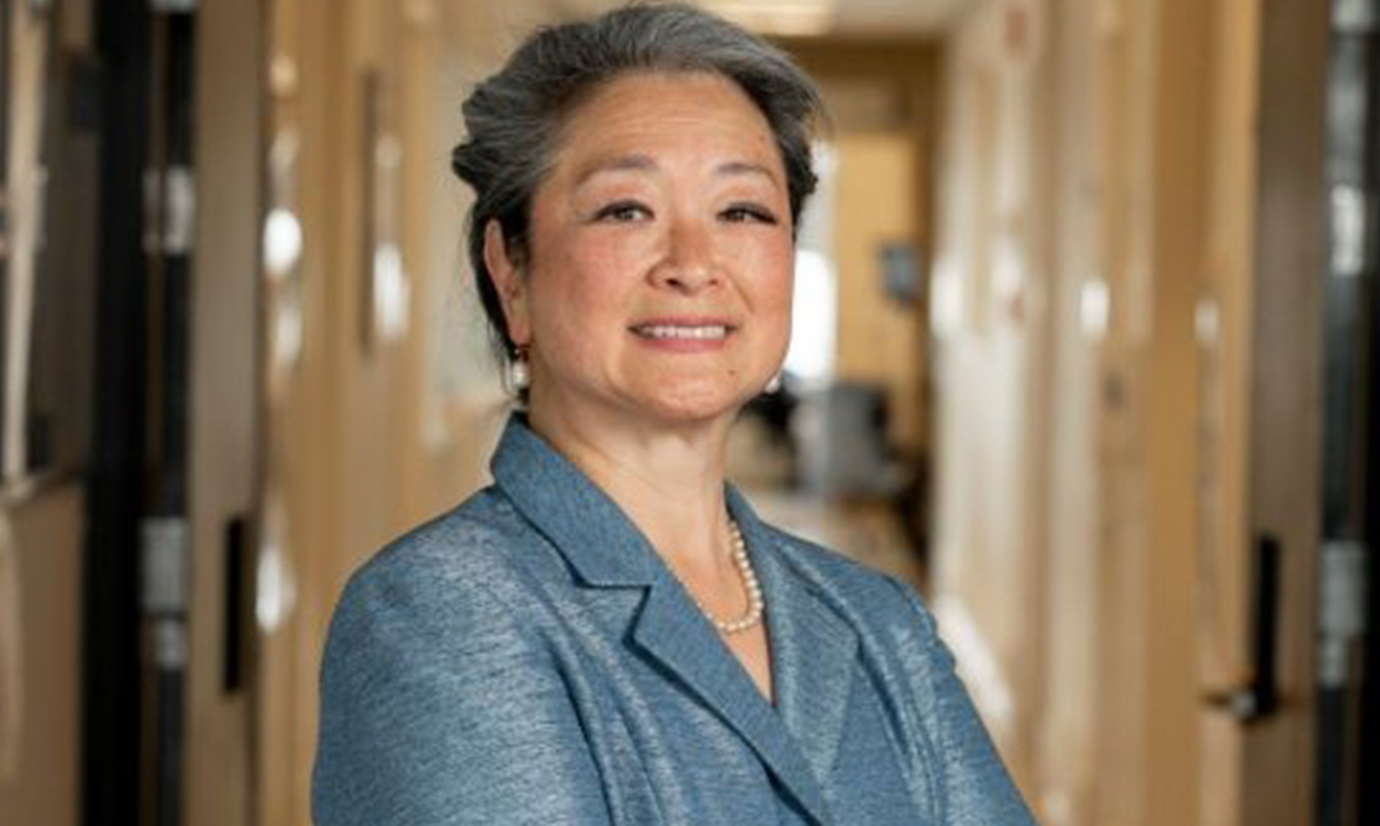Unraveling the Myths of Menopause
For much of her career, gynecologist Wen Shen has devoted herself to helping patients and clinicians grasp the realities of the biological process.

By 2030, it’s estimated that half of the women in the U.S. will be menopausal. That poses an urgent public health challenge that medical systems are still unprepared to tackle, says Johns Hopkins gynecologist Wen Shen, a nationally recognized leader in clinical menopause care and education.
“It’s unacceptable to ignore this, not only because of the quality-of-life elements but because of all of the medical issues linked to menopause that develop in women past midlife,” says Shen, who co-founded one of the first dedicated menopause programs in the country — the Women’s Wellness and Healthy Aging Program at Johns Hopkins — in 2019.

Wen Shen
Shen’s work in the field of menopause began more than two decades ago, a time when the subject was scarcely discussed in medical circles. “When I said 'menopause medicine,' people would ask, ‘What’s that?’”
Since then, she’s made it her mission to raise awareness and education of menopause care among women and health-care professionals, and to destigmatize a topic historically shrouded in shame and silence.
In 2013, Shen and her colleagues led a seminal survey of all gyn-ob residents in the United States, which revealed that most felt ill-equipped to treat menopause symptoms, and had received little to no training on the topic. “I realized that women were not going to get adequate care until the providers had the knowledge,” she says.
Shen created and edits the Johns Hopkins Menopause Guide (Apple or Google), a highly rated mobile app offering health-care providers with a comprehensive, quick-reference tool for treating menopause. To date, over 2,300 providers in seven countries have made use of the tool.
When Shen started the Women’s Wellness and Healthy Aging Program with her colleague Vered Stearns, the initial purpose was to help their mutual patients, including those with breast cancer, streamline treatment with different specialists. Today the program is a multidisciplinary network of Johns Hopkins experts focused on caring for women at midlife, educating the next generation of menopause providers and researching the science of menopause.
As a noted clinician and educator, Shen is a frequent speaker among medical and professional groups, and takes part in clinical research with significance for menopause patients — including a recent pilot program to test the potential of cognitive behavioral therapy to treat symptoms.
She has remained an advocate for more sweeping reforms in the way the U.S. health-care industry approaches menopause, urging for a national program to educate providers, backed by mandates from medical boards. She’s also expressed concerns about non-evidence-based venture capitalists encroaching into the women’s health space.
But Shen also says she’s felt encouraged by recent progress in menopause awareness — as “the understanding and presence in the media has really blossomed,” she says. “It’s no longer just whispered about.”
Interested in learning more about treatment of menopause?
Don’t miss this regional CME opportunity from Johns Hopkins’ Women’s Wellness and Healthy Aging Program: Empowered Transitions: Menopause, Wellness and Healthy Aging in Women. This one-day program focuses on personalized treatment of the whole woman with an understanding of medical conditions and healthy aging practices in her post-reproductive years. Topics will include conditions that uniquely affect women going through menopause with a panel of multidisciplinary speakers.
Learn more and register here
